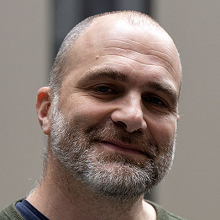Mathieu Wollf, Directeur de recherche CNRS, INCIA, Bordeaux Neurocampus
Audrey Hay et le GT conférences CRNL

Abstract
In highly volatile environments, performing actions that address current needs and desires is an ongoing challenge for living organisms. For example, the predictive value of environmental signals needs to be updated when predicted and actual outcomes differ. Furthermore, organisms also need to gain control over the environment through actions that are expected to produce specific outcomes. I will present data showing that these processes are highly reliant on thalamocortical circuits and that thalamic nuclei make a critical contribution to adaptive decision-making, challenging the view that the thalamus only acts as a relay station for the cortical stage. Over the past few years, our work has highlighted the specific contribution of multiple thalamic nuclei in the ability to update the predictive link between events or the causal link between actions and their outcomes via the combination of targeted thalamic interventions (lesion, chemogenetics, disconnections) with behavioral procedures rooted in experimental psychology. I will especially focus on the important role of the mediodorsal thalamus and of its functional interactions with the orbitofrontal cortex to learn and decide in changing environments. We argue that several features of thalamocortical architecture are consistent with a prominent role for thalamic nuclei in shaping mental representations.
CRNL | CH Le Vinatier | Bâtiment 462 Neurocampus Michel Jouvet | Amphithéâtre | 95 Boulevard Pinel | 69500 Bron











